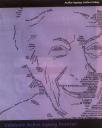worKIn on IT
Notes on the KI Symposium on Nov 15, 2007
The symposium invited two much-lauded professors from NUS and that made me look forward to hearing from them again–Helmer Aslaksen (Mathematics in Arts and Architecture) and KP Mohanan (Research Workshop). I thought the former had a humble presentation which would open the eyes of KI-beginners, while the latter’s reminded me quite entirely of what I had learnt in the good old days. Chris Smith, the last speaker, had a really interesting presentation which presented an alternative way to deliver a lesson even when you are down with a sore throat. David Fahy (CJC), the presenter of a “Concurrent Session” on Knowledge Inquiry and Atom Autonomy and Anatomy, gave a very thought-enriching seminar that threw me back to the times of academic discourse not so long ago. (“The presentation involves reference to the use of Cartesian doubt/ skeptical inquiry in the construction of so-called scientific knowledge using the claimed existence of atoms in all the matter of the physical universe by way of illustration, and the further claim that the entire world [world in the sense of everything that exists] is made up of nothing but atoms.”)
I reproduce here the personal and very abstract notes of the sessions:
– Wittgenstein: Tractatus Logico-Philosophicus. DF Pears & BF McGuiness; Routledge, 2006. => see it in e light of NSM ~ say what you can ascertain & leave those that can’t unsaid => maxim of relation, quality
– “1421: China discovered the world” & “1421: Myth exposed” => source reliability; pseudo-citations => technology enables credibility to be more easily established perhaps
– Da Vinci Code, Golden Ration: fact or fiction?
– Are we looking for originality (arts’ view) or understanding (math’s view) in works?
– physiognomy
-“The sun rises from the east” => the sun moves about e Earth => an age old belief => becoming a common way of saying
– all knowledge can be doubted but the degree of reasonable doubts is what makes knowledge credible or not.
– Are higher levels of thinking not able to be attained with tools technologically driven?
– Can digital equality bridge the knowledge divide?
– Length of serious academic discussions–restrictions sometimes don’t do justice to the quality. Digressions are necessary.
– “All knowledge begins with our first experiences of the world.”
– A question of one and only world view of a subject, or a dominant world view of the subject?
– “The Value of True Belief” by Richard Swinburne in Epistemic Justification VS False beliefs are equally useful (~Bernard Williams, Oxford [myths, lunacy]) => Qn: How we arrive at our beliefs? The processes.
* * * * *
Last GP lesson
There is a GP lecture at the Audi this Fri 9 Nov 2007 from 10.30am to 12.30pm. Please turn up for a surprise!
-
Archives
- January 2011 (2)
- November 2010 (6)
- October 2010 (4)
- September 2010 (6)
- August 2010 (5)
- July 2010 (13)
- June 2010 (9)
- May 2010 (3)
- April 2010 (4)
- March 2010 (6)
- February 2010 (1)
- January 2010 (4)
-
Categories
-
RSS
Entries RSS
Comments RSS
